
André Claveau at the ESC in 1958 at Hilversum, Date: 12 03 1958
Source: Beeld en Geluidwiki – Gallery: Eurovisie Songfestival 1958, Originator: nl:Nederlandse Televisie Stichting, Licence: Licentie Beeld en Geluidwiki and Wikimedia Commons
The Eurovision Song Contest (ESC) offers a powerful stage for extravagant and queer performances, great visions, exuberant zeitgeist, and so-called trash. And although officially denied, it is of course a place of negotiating and representing national and European politics, (sexual) identities, and culture.
Geopolitics and the Creation of the ESC
The ESC was launched by the European Broadcasting Union (EBU) in 1956. The annual event should encourage a feeling of coherence and promote shared values among Western European nations. [1] The founding post-war societies hoped that close bonds would bring economic prosperity and fight off the ghost of Socialism and Soviet hegemony. Although the establishment of the ESC might be read as a symbol of rejecting Nazism, Fascism, and Socialism, actual policies were ambiguous.[2] Both Spain and Portugal were allowed to join the ESC, in 1961 and 1964 respectively, while still being under fascist rule. The authoritarian Socialist Federal Republic of Yugoslavia gained entry in 1961. From 1977 to 1980, the so-called Eastern Bloc promoted its own TV extravaganza, the Intervision Song Contest.
Expansion
The fall of the Iron Curtain and the dissolution of the Eastern Bloc opened the field for new contestants. In practice, policies of the EBU were not thoroughly inviting and welcoming. Bosnia Herzegovina, Croatia, Slovenia, Hungary, Romania, Slovakia, and Estonia had to compete in a pre-selection qualifier (“Kvalifikacija za Millstreet”) in order to attend the ESC in 1993.[3] Only the top three nations, Bosnia Herzegovina, Croatia and Slovenia, gained entry. Nineteen fellow post-socialist countries debuted in the period from 1994 to 2008.[4]
The successful performances of the new contestants gave rise to strong debates about bloc-voting and winners from the East. Due to this, I will take a close look at the discourse emerging after the ESC in 2007. At this show, European audiences strongly favoured competitors from the European East and South-East. Many media commentators suggested that this had been a dismissal of Western European competitors and music styles. And as maybe and most dramatically put by some of them, it appeared to be proof of being overrun by unfair Easterners.[5]
In 2001, European audiences favoured the Estonian entry. It was the first victory for a country formerly occupied by the Soviet Union. And it featured another premiere: Estonia’s Dave Benton was the first performer of Afro-Caribbean descent to win the ESC. Four other competitors from the East or South-East took home the title before things culminated in 2007. At this event, the artistic contributions from West European nations failed to impress ESC audiences.
ESC 2007. Queerness Wins

Serbia’s Marija Šerifović won with “Molitva” the ESC in 2007, Date: 11 05 2007
Originator: Indrek Galetin, Licence: Wikimedia Commons
Serbia’s Marija Šerifović triumphed with a ballad called “Molitva”. It was a clever performance that could be read as queer, but it could also be understood as a demonstration of Serbian national unity. [6] The Ukrainian drag queen performance by Verka Serduchka “Dancing Lasha Tumbai” came in second.[7] Ukrainian nationalists protested heavily against the song and characterized it damaging for the country.[8] Critique went so far as to defame the artist as a hermaphrodite.[9] The general response in Ukraine was more relaxed and pragmatic. The performance was great PR and helped bring the Ukraine from the Eastern periphery to the European centre.[10] Both performances suggested that the ESC is a stage for negotiating and queering gender identities, but it is also a stage to (re-)brand and build nations by exploiting the concept of sexual freedom, thus raising questions about lesbian, gay, bisexual, transgender, and queer (LGBTQ) issues and human rights violations in those countries.
Germany’s and UK’s Response to the Fiasco of 2007
The day after the ESC 2007, the British TV personality Terry Wogan lamented that there was a “Eurovision Cold War” going on and that the “Eastern Bloc is ganging up on us”.[11] In his eyes, the former members of the Eastern Bloc had supported each other too much, and those tactics had left Western European countries outside on their own. He claimed that the dismissed nations “could even decide to pull out of the contest altogether”.[12] The German online tabloid bild.de warned its readers one day before the actual event, writing, “Fear of the Votes-Mafia from the East”.[13] In the aftermath, German Song Contest personalities suggested withdrawing and focusing on the former Western European-only “Grand Prix Eurovision de la Chanson”.[14]
Not only (online) tabloids in Great Britain and Germany expressed bias. I took a close look at the online coverage of The Times/The Sunday Times, The Economist, Spiegel and Stern,[15] all four representing quality news coverage. Although those media outlets tried to distance themselves from the discriminatory discourse, they struggled quite a bit.
The rhetorical means of irony and free indirect speech did not help much in clarifying their own positions, let alone presenting alternative interpretations.[16] There could have been narratives on the appeal of camp humour,[17] the rise of multi-ethnic crossover songs,[18] and queerness as public diplomacy.[19] Instead, the Sunday Times criticised that the UK’s performance was too Eurocentric and not British enough.[20] Another strategy was to ridicule the ESC, its performers and audiences on a gendered basis.[21] The Times described the ESC as the “Football Association Challenge Cup” of the international LGBTQ community.[22]
German online media explained that Germany’s song and its genre were too sophisticated for Eastern European taste.[23] Furthermore, Germany should send its best performers and not unknown local talents.[24] At least there was some critique that the German song portrayed women as true beneficiaries of patriarchal societies.[25]
Protest and Return on Investment

Scoreboard for the ESC in 1958, Date: 12 03 1958
Source: Beeld en Geluidwiki – Gallery: Eurovisie Songfestival 1958, Originator: nl:Nederlandse Televisie Stichting, Licence: Licentie Beeld en Geluidwiki and Wikimedia Commons
Because of the dominance of Eastern European entries, Germany submitted a protest to the EBU. German officials criticized that there had been too many favours among Eastern European countries. They even questioned Šerifović’s win. Furthermore, they suggested that the return on investment was unsatisfying for the biggest sponsors of the ESC (Germany, UK, France, and Spain). Indeed, the EBU carried out an investigation. It re-confirmed Šerifović’s win.
Nevertheless, the ESC of 2007 turned out to be a game changer. New rules were introduced to prevent bloc-voting, among them, two separate semi-finals with restricted voting. Competing countries from ‘semi-final 1’ could not vote for entries of ‘semi-final 2’ and vice versa. In 2009, the vote of the audiences was devalued and back-up juries were empowered. Since then, the juries are responsible for 50 % of the final result. The other 50 % still reflects the taste of the audiences. The EBU denied that the new rules were meant to calm the biggest sponsors. EBU officials argued that the back-up juries were better qualified and that they could listen to the songs repeatedly, so the outcome would be more sophisticated and quality-driven.
History, Dichotomies, and Queerness as Cultural Diplomacy
Many media commentators inconsiderately used terms like Iron Curtain and Eastern Bloc in the discourse emerging after the ESC 2007, ignoring history and wrongfully suggesting homogeneity among Eastern and South Eastern countries and the absence of conflicts. Troublesome Russian-Ukrainian relations offers a telling example of enduring and swelling controversies.
The discourse in 2007 was characterized by dichotomies of old and new, traditional and modern, and self and other.[26] Serbia and Ukraine in particular used the ESC stage to re-brand themselves.[27] Both challenged the dichotomy of a traditional and anti-liberal European East and a modern and sexually liberal West. As has been shown, even quality news coverage was preoccupied with debating bloc-voting and too much generosity among Eastern European nations.
Due to the dominance of this aspect, the suggested queerness of the Serbian and Ukrainian entries were willingly accepted without turning an eye to the difficult everyday lives of LGBTQ individuals and ethnic minorities in those countries. Consequently, a less preoccupied and close-minded focus would have helped to identify that queerness had become a successful strategy for cultural diplomacy, nation building and re-branding, but it was not necessarily indicative of an improvement in the quality of life of LGBTQ individuals.
Anmerkungen
[1] Ivan Raykoff, Camping on the borders of Europe. In: Ivan Raykoff, Robert Deam Tobin (Eds.), A song for Europe. Popular music and politics in the Eurovision song contest (Aldershot 2007) 1-12. Whenever I use the terms East-, South-East- or Western Europe and the like I refer to them as very specific, heterogeneous, and historically formed constructs which do not have a stable inner core. Those constructs represent discourse effects generated by the discourse on East-, South-East- or Western Europe.
[2] Dean Vuletic. Das Lied des Machthabers. Autoritäre Staaten beim Eurovision Song Contest. In: Christine Erhardt, Georg Vogt, Florian Wagner (Eds.), Eurovision Song Contest. Eine kleine Geschichte zwischen Körper, Geschlecht und Nation (Wien 2015) 93-110.
[3] Paul Thomas Jordan, The Eurovision Song Contest: Nation Branding and Nation Building in Estonia and Ukraine (PhD thesis University of Glasgow 2011) 44, http://theses.gla.ac.uk/2972/1/2011jordanphd.pdf.
[4] Those were: Estonia, Hungary, Lithuania, Poland, Romania, Slovakia, Russia, Latvia, Ukraine, Albania, Belarus, Bulgaria, Moldova, Armenia, Czech Republic, Georgia, Azerbaijan, Serbia, and Montenegro.
[5] Eurovision Cold War: Eastern Bloc is ganging up on us, warns Wogan, DailyMail.com, http://www.dailymail.co.uk/news/article-454564/Eurovision-Cold-War-Eastern-Bloc-ganging-warns-Wogan.html#ixzz3XAPQWEUb.
[6] The performance played with elements of butch/femme identities. Catherine Baker, Gender and Geopolitics in the Eurovision Song Contest. In: Southeastern Europe 2/1 (2015) 74-93, here 77. J. Y. Chua, Eurovision and the Making of Queer (Counter-)Cultural Diplomacy. In: Yale Review of International Studies February (2016), http://yris.yira.org/essays/1650.
[7] Some media commentators suggested that Verka Serduchka’s “Dancing Lasha Tumbai” ultimately sent a farewell to Russia (decoded as “Russia Goodbye”). Daniel Haas, Helsinki 2007: Heulsusen regier’n die Welt. In: Spiegel Online – Kultur 13.05.2007. http://www.spiegel.de/kultur/musik/helsinki-2007-heulsusen-regier-n-die-welt-a-482632.html.
[8] Helen Fawkes, Eurovision act angers Ukrainians. In: BBC News – Entertainment 02.04.2007, http://news.bbc.co.uk/2/hi/entertainment/6516927.stm.
[9] See reference 3, 202.
[10] Ibid, 204-205.
[11] See reference 5.
[12] Ibid.
[13] M. Pittelklau, Angst vor Stimmen-Mafia aus dem Osten, Bild.de, 11.5.2007, http://www.bild.de/leute/2007/angst-stimmen-mafia-1827930.bild.html.
[14] Irving Wolther, Moldawien? Twelve Points! Eurovision Song Contest 2008, Spiegel Online Kultur, http://www.spiegel.de/kultur/musik/0,1518,553998,00.html.
[15] Michaela Maria Hintermayr, „Balkanovision Sowjet Contest“: Eine Analyse der Nachberichterstattung über den Eurovision Song Contest 2007. In: Christine Erhardt, Georg Vogt, Florian Wagner (Eds.), Eurovision Song Contest. Eine kleine Geschichte zwischen Körper, Geschlecht und Nation (Wien 2015) 308-323.
[16] Ibid.
[17] Robert Deam Tobin, Eurovision at 50: Post-Wall and Post-Stonewoll. In: Ivan Raykoff, Robert Deam Tobin (Eds.), A song for Europe. Popular music and politics in the Eurovision song contest (Aldershot 2007), 25-35, here 33-34.
[18] Alf Björnberg, “Return to Ethnicity: The Cultural Significance of Musical Change in the Eurovision Song Contest”. In: Ivan Raykoff, Robert Deam Tobin (Eds.), A song for Europe. Popular music and politics in the Eurovision song contest (Aldershot 2007) 13-24.
[19] J. Y. Chua, Eurovision and the Making of Queer (Counter-)Cultural Diplomacy. In: Yale Review of International Studies February (2016), http://yris.yira.org/essays/1650.
[20] Brendan Bourne, UK’s Scooch nosedive at Eurovision. In: The Sunday Times 13.05.2007, http://www.thesundaytimes.co.uk/sto/culture/music/article64664.ece.
[21] Stephen Coleman, Why is the Eurovision Song Contest Ridiculous? Exploring a Spectale of Embarrassment, Irony and Identity. In: Popular Communication 6 (2008) 127-140.
[22] Robbie Millen, Of course it’s all a joke – but do they know that in Sarajevo? In: The Times 14.05.2007, http://www.thetimes.co.uk/tto/arts/music/article2414126.ece
[23] Daniel Haas, Eurovision Song Contest 2007: Den Westen ins Gebet nehmen. In: Spiegel Online 12.05.2007, http://www.spiegel.de/kultur/musik/eurovision-song-contest-2007-den-westen-ins-gebet-nehmen-a-482571.html.
[24] Peter Luley, Genöle aus Germany. In: stern.de 13.05.2007, http://www.stern.de/kultur/musik/eurovision-song-contest-genoele-aus-germany-588947.html.
[25] Daniel Haas, Helsinki 2007: Heulsusen regier’n die Welt. In: Spiegel Online – Kultur 13.05.2007, http://www.spiegel.de/kultur/musik/helsinki-2007-heulsusen-regier-n-die-welt-a-482632.html.
[26] Cornel Sandvoss, On the Couch with Europe: The Eurovision Song Contest, the European Broadcast Union and Belonging on the Old Continent. In: Popular Communication. The International Journal of Media and Culture 6/3 (2008) 190-207, here 197.
[27] Nation branding, a Neo-Liberal marketing tool, aims to promote nations like products on a global market. Galina Miazhevich, Ukrainian Nation Branding Off-line and Online: Verka Serduchka at the Eurovision Song Contest. In: Europe-Asia Studies 64/8 (2012) 1505-1523. Branislava (Brana) Mijatović, “The Musical (Re)branding of Serbia: Srbija Sounds Global, Guča, and EXIT”. In: Nadia Kaneva (Ed.), Branding Post-Communist Nations. Marketizing National Idenitities in the “New” Europe (New York 2012) 213-237.

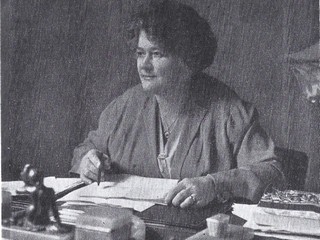
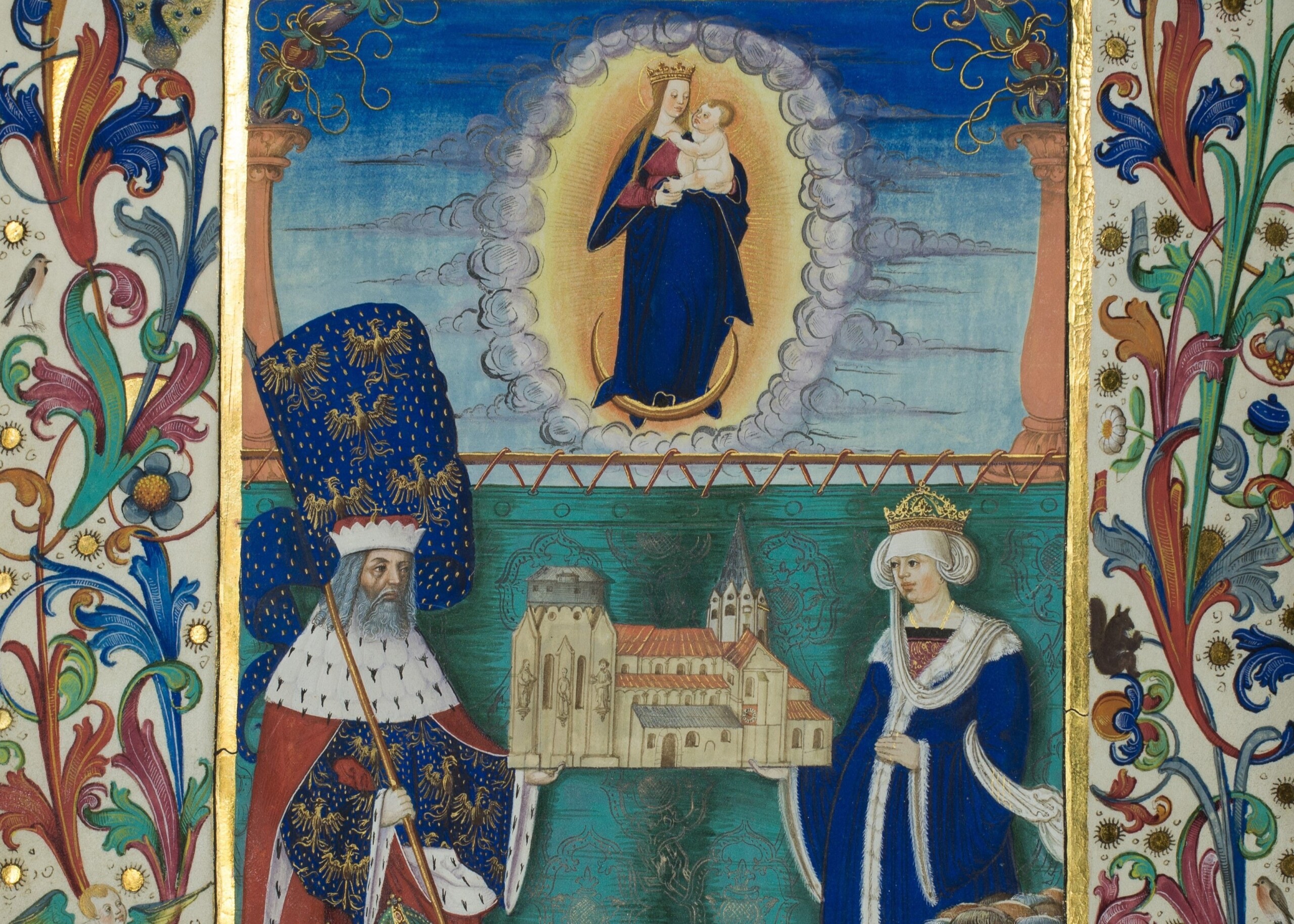
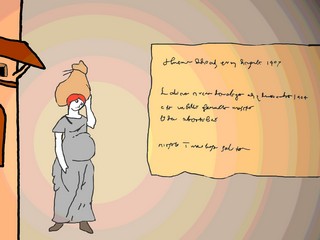
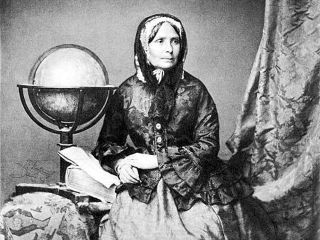
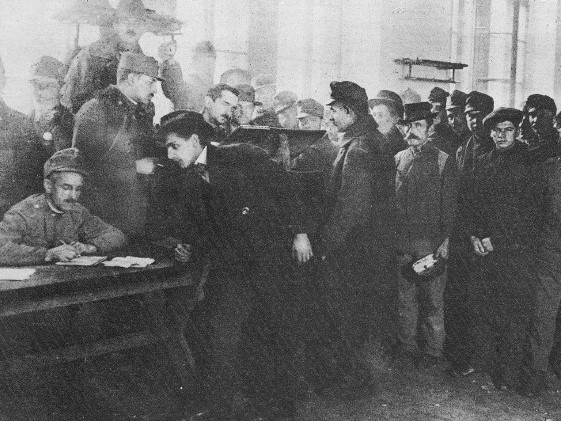
[…] Eurovision Cold War. Geopolitics and Queerness at the Eurovision Song Contest in 2007; von Michaela Maria Hintermayr (Link) […]
[…] Eurovision Cold War. Geopolitics and Queerness at the Eurovision Song Contest in 2007; von Michaela Maria Hintermayr (Link) […]